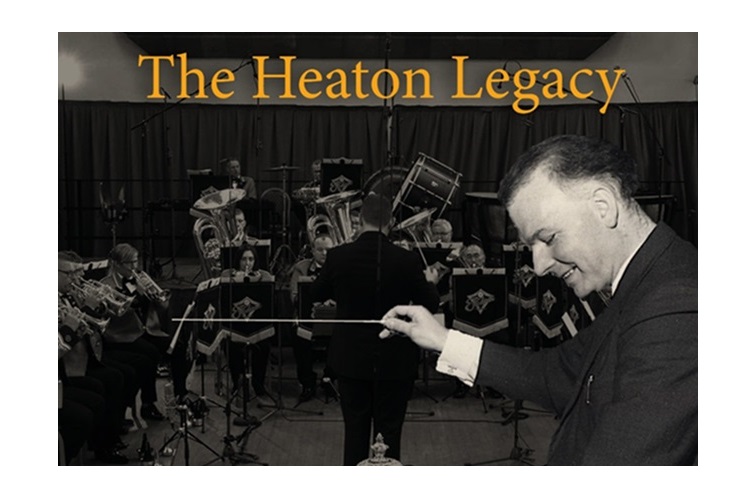

Written and presented by Paul Hindmarsh
Featuring: Foden’s Band
Conductor: Michael Fowles
WobPlay: www.wobplay.com
Paul Hindmarsh’s dedicated resolve to unravel the enigmatic complexities of the musical life of Wilfred Heaton (1918-2000) stands as a remarkable piece of passionate research.
Over the past 20 years his explorations have mirrored the composer’s own singularity of purpose to reveal the elemental touchstones of his creative originality. Without his academic rigour and deeply ingrained love of his music, Heaton’s name would have remained an intriguing footnote in brass banding history.
Artistic flourish
This affectionate tribute, enhanced by fine performances by Foden’s Band, adds a final artistic flourish ahead of what is sure to be his substantive biography.
It is a succinct, insightful appreciation of what Heaton called an ‘unregarded corner’ of his life - one that almost stubbornly remained at a tangent to the musical ‘norms’ of his time and especially his Salvationist background.
It is a succinct, insightful appreciation of what Heaton called an ‘unregarded corner’ of his life - one that almost stubbornly remained at a tangent to the musical ‘norms’ of his time and especially his Salvationist background.
Hindmarsh illuminates some of the stanchion points of his sporadic, somewhat fractured output - revealing the threads of modernism, jazz and Walton that were subtly weaved into scores to form patterns and textures years ahead of their time - from sparse angularity to sumptuous richness.
Searching for certainty
It is heard in the nascent rebelliousness to the march ‘Glory! Glory!’ (written as a teenager, then destroyed, only to be resurrected years later from the recesses of his almost eidetic memory), which stands in contrast to the elegant Sunday School sensibilities of ‘The Children’s Friend’.
As Hindmarsh argues though, he was forever exploring (such as the philosophical teachings of Rudolf Steiner’s Anthroposophical movement), searching for a certainty that would ultimately bring creative satisfaction.
As Hindmarsh argues though, he was forever exploring (such as the philosophical teachings of Rudolf Steiner’s Anthroposophical movement), searching for a certainty that would ultimately bring creative satisfaction.
It led to Schoenberg, Bartok and Hindemith permeating his music - ‘Safe in the Promised Land’ (transcribed by Hindmarsh) an acidic, quirky ‘spiritual’ curio. Yet as his shown by the exuberant ‘Beullah Land’, those contradictions never left him.
Validiction
His aversion to self-promotion in the brass banding world led to an extended period of creative abstinence. However, it also freed him to further refine exceptional compositional skills.
His aversion to self-promotion in the brass banding world led to an extended period of creative abstinence, it also freed him to further refine exceptional compositional skills.
It resulted in turning three studies for his teacher Matyas Seiber into ‘Contest Music’, but also saw him (with Hindmarsh’s appreciative sensitivity) re-evaluate and repurpose other works such as ‘Pilgrim’s Song Variations’.
And whilst ‘Contest Music’ is arguably his crowning glory, it is the epically proportioned ‘Variations’ (initially over half an hour in duration, but here in a skilfully ‘abridged version’) that as Hindmarsh argues, is the ultimate ‘valedictory’ statement of his creative instincts – the final chorale yet another exploration of “something new and joyous”.
Iwan Fox









